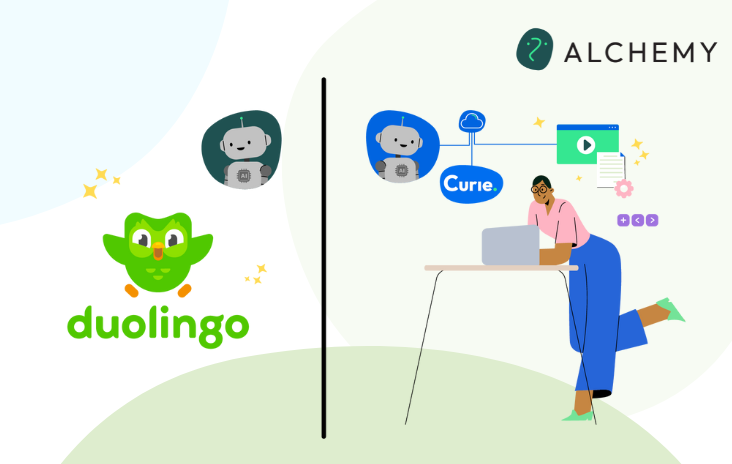Article
Navigating the Ethical Landscape of AI in Academic Research

The integration of rapidly evolving Artificial Intelligence (AI) technologies into academic research has created new opportunities for exploration, efficiency, and innovation. However, this integration is not without its ethical quandaries. As scholars and researchers, it is imperative to navigate this landscape with a keen awareness of the ethical implications at each stage of the research process. This blog post aims to shed light on the overarching context of AI ethics in research and explore some of the considerations inherent in key stages of research, underscoring the importance of ethical vigilance and the potential consequences of oversight.
The Ethical Imperative in AI-Enabled Research
Though not yet broadly adopted, the advent of AI in research has been nothing short of revolutionary, offering unprecedented capabilities in data analysis, pattern recognition, and even in the generation of new hypotheses. Yet, with great power comes greater responsibility. The ethical considerations in employing AI tools range from issues of bias and transparency to concerns about privacy and consent. At the heart of these considerations is the integrity of the research process and the trustworthiness of its outcomes.
Ethical Considerations Across Research Stages
Research Design:
The foundation of any research project, the design phase, is where ethical considerations begin. AI can influence the selection of research questions and the scope of investigations, as AI algorithms might prioritize questions based on biased historical data or the interests of their developers, rather than the relevance or greater importance to the field. Ensuring that AI tools are used to broaden, rather than narrow, the research perspective is crucial for maintaining the objectivity and relevance of scholarly inquiry.
Data Collection:
As researchers gather data, AI’s role in mediating this process raises significant ethical questions, particularly regarding consent and privacy. When AI is used to collect or mine data, especially from online sources or through digital means, it is essential to uphold the highest standards of informed consent and to safeguard the privacy and rights of participants. For example, an AI tool designed to collect social media posts for sentiment analysis might inadvertently collect and analyze posts from users who have not consented to their data being used for research, violating privacy rights and ethical standards. Increasingly, we should see institutional review boards (IRB) addressing these issues before approving research efforts utilizing AI.
Data Analysis:
The analysis stage can be heavily reliant on AI for handling large datasets and is fraught with ethical challenges. Researchers must be vigilant against biases that AI systems may introduce and strive for methodologies that are both robust and interpretable. For example, an AI model used for analyzing clinical trial data might be biased towards male patients if the training data included more male than female participants. This could lead to conclusions that are less accurate for female patients, potentially affecting treatment recommendations and health outcomes. The transparency of AI algorithms and the explainability of their outputs are paramount to ensure that the findings are interpretable and credible.
Conclusions and Recommendations:
Using AI to draft conclusions and recommendations in research introduces unique ethical issues that extend beyond the biases inherited from earlier stages. These issues primarily revolve around the interpretation of data, the generation of narrative, and the decision-making process. First is attribution and authorship – particularly in academic contexts where authorship carries implications for responsibility, credibility, and academic recognition or promotion. Additionally, this section of the research report is where AI may come off as over-confident (e.g., hallucinate) and ignore or not pick up on nuances in the data that a trained disciplinary researcher would likely identify. If these important nuances or critical insights are overlooked due to overreliance on AI then the related scholarly discourse becomes compromised.
The Positive Impact of Ethical Awareness
Maintaining ethical vigilance in AI-assisted research fosters a culture of integrity and trust in academic scholarship. It ensures that research outcomes are not only innovative but also credible and ethically sound. Ethical awareness in the use of AI safeguards against the risks of bias, ensures the privacy and rights of subjects, and upholds the standards of scientific inquiry.
The Risks of Ethical Complacency
Conversely, a lack of ethical oversight in AI-enabled research can lead to significant pitfalls. Biased AI algorithms can skew research findings, undermining the validity and reliability of scholarly work. Inadequate attention to privacy and consent in data collection can breach ethical standards and erode public trust in academic research. Moreover, the uncritical acceptance of AI-generated content can blur the lines of authorship and originality, challenging the very foundations of scholarly contribution.
Conclusion
As we navigate the complex interplay between AI and academic research, it is clear that ethical considerations are not just peripheral concerns but central to the integrity and impact of scholarly work. By embedding ethical awareness into every stage of the research process, we can harness the full potential of AI in advancing knowledge while upholding the values of transparency, fairness, and respect for academic integrity. The ethical use of AI in research is not just a regulatory requirement but a cornerstone of scholarly excellence and providing the truth as we know it.
Watch a recording of our recent webinar Unlock the Power of AI for Academic Research and join our mailing list to stay informed about future webinars and insights.



